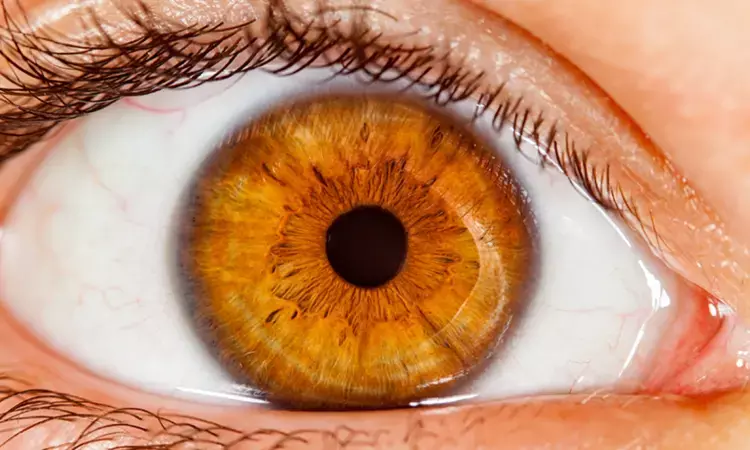- Home
- Medical news & Guidelines
- Anesthesiology
- Cardiology and CTVS
- Critical Care
- Dentistry
- Dermatology
- Diabetes and Endocrinology
- ENT
- Gastroenterology
- Medicine
- Nephrology
- Neurology
- Obstretics-Gynaecology
- Oncology
- Ophthalmology
- Orthopaedics
- Pediatrics-Neonatology
- Psychiatry
- Pulmonology
- Radiology
- Surgery
- Urology
- Laboratory Medicine
- Diet
- Nursing
- Paramedical
- Physiotherapy
- Health news
- Fact Check
- Bone Health Fact Check
- Brain Health Fact Check
- Cancer Related Fact Check
- Child Care Fact Check
- Dental and oral health fact check
- Diabetes and metabolic health fact check
- Diet and Nutrition Fact Check
- Eye and ENT Care Fact Check
- Fitness fact check
- Gut health fact check
- Heart health fact check
- Kidney health fact check
- Medical education fact check
- Men's health fact check
- Respiratory fact check
- Skin and hair care fact check
- Vaccine and Immunization fact check
- Women's health fact check
- AYUSH
- State News
- Andaman and Nicobar Islands
- Andhra Pradesh
- Arunachal Pradesh
- Assam
- Bihar
- Chandigarh
- Chattisgarh
- Dadra and Nagar Haveli
- Daman and Diu
- Delhi
- Goa
- Gujarat
- Haryana
- Himachal Pradesh
- Jammu & Kashmir
- Jharkhand
- Karnataka
- Kerala
- Ladakh
- Lakshadweep
- Madhya Pradesh
- Maharashtra
- Manipur
- Meghalaya
- Mizoram
- Nagaland
- Odisha
- Puducherry
- Punjab
- Rajasthan
- Sikkim
- Tamil Nadu
- Telangana
- Tripura
- Uttar Pradesh
- Uttrakhand
- West Bengal
- Medical Education
- Industry
Subset of diabetes patients at risk of retinopathy within 5 years of diagnosis: Study

Los Angeles, CA: A new study by Dr. William S. Gange and the team reported that some patients with type 2 diabetes are likely to develop proliferative diabetic retinopathy (PDR) and other neovascular complications within the first 5 years following type 2 diabetes diagnosis. The study is published in the journal Diabetes Care.
Type 2 diabetes poses several complications and risk factors. Proliferative diabetic retinopathy is a serious sight-threatening complication of diabetes with several other complications.
William S. Gange from the University of Southern California, Los Angeles, and colleagues aimed to determine the incidence and risk factors for developing Proliferative diabetic retinopathy, tractional retinal detachment (TRD), and neovascular glaucoma (NVG) at 5 years after the initial diagnosis of type 2 diabetes.
For this purpose, the researchers identified insured patients aged ≥18 with newly diagnosed type 2 diabetes and 5 years of continuous enrollment from a nationwide commercial claims database containing data from 2007 to 2015. The incidences of Proliferative diabetic retinopathy, TRD, and NVG were computed at 5 years following the index diagnosis of type 2 diabetes. Associations between these outcomes and demographic, socioeconomic, and medical factors were tested.
The results of the study were found to be:
- At 5 years following the initial diagnosis of type 2 diabetes, 1.74% (1,249 of 71,817) of patients had developed PDR, 0.25% of patients had developed TRD, and 0.14% of patients had developed NVG.
- Insulin use (odds ratio [OR] 3.59), maximum HbA1c >9% or >75 mmol/mol (OR 2.10), renal disease (OR 2.68), peripheral circulatory disorders (OR 1.88), neurological disease (OR 1.62), and older age (age 65–74) at diagnosis (OR 1.62) were identified as risk factors for development of PDR at 5 years.
- Young age (age 18–23) at diagnosis (OR 0.46,), Medicare insurance (OR 0.60), morbid obesity (OR 0.72), and smoking (OR 0.84,) were identified as protective factors.
Gange and the team concluded that "A subset of patients with type 2 diabetes develop Proliferative diabetic retinopathy and other neovascular sequelae within the first 5 years following the diagnosis with type 2 diabetes. These patients may benefit from increased efforts for screening and early intervention."
For further information: https://doi.org/10.2337/dc21-0228
Medical Dialogues consists of a team of passionate medical/scientific writers, led by doctors and healthcare researchers. Our team efforts to bring you updated and timely news about the important happenings of the medical and healthcare sector. Our editorial team can be reached at editorial@medicaldialogues.in.
Dr Kamal Kant Kohli-MBBS, DTCD- a chest specialist with more than 30 years of practice and a flair for writing clinical articles, Dr Kamal Kant Kohli joined Medical Dialogues as a Chief Editor of Medical News. Besides writing articles, as an editor, he proofreads and verifies all the medical content published on Medical Dialogues including those coming from journals, studies,medical conferences,guidelines etc. Email: drkohli@medicaldialogues.in. Contact no. 011-43720751


